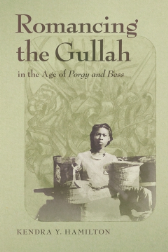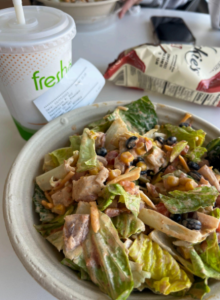Why Yik Yak Bigotry is Toxic to the PC Community

Wikimedia Commons
March 8, 2016
Shortly before spring break, our campus’s Yik Yak became a forum about race—a response to a poster in the Springs Student Center encouraging us to remember black victims of police violence. Somehow, this poster was perceived as an insult to police and to equality. Post after post angrily demanded the poster be taken down, or criticized it and Black History Month for not supporting equality. Racist sentiments gathered upvotes in comment threads, and I felt sick to my stomach seeing this hateful and angry side to PC. At one point, someone made a threat, saying that PC should watch itself if it was going to harbor anti-police attitudes.
Unfortunately, this has happened before. When the events in Ferguson first gained traction in the news, Yik Yak exploded with anti-black comments. A few times a year, someone posts about race and the comment thread is littered with openly racist remarks and someone always condescendingly telling someone else, “That’s just how the real world works.”
Another conversation flows from the ones posted on Yik Yak. It’s about what kind of community PC has: whether it’s merely tolerant, or really working for open-mindedness and diversity. While Yik Yak reflects an angry, bigoted image of PC, the real life response has been empathetic and progressive. On Wednesday, February 24, several professors canceled classes as a stance against the offensive statements said on Yik Yak and the events that followed: vandalism of the Springs poster and a student aggressively threatening a staff member.
When asked about why he chose to cancel class, Dr. Jay Michaels of the Psychology Department responded, “What occurred on Yik Yak, at least to my understanding, was an absolute defiance of anything that has to do with equal opportunity and non-discrimination. What was really alarming to me was that there was no notification sent out to faculty, to staff, and as well to the students—and really, all the information going around was by word of mouth. And when you have something as serious as what transpired, that’s just unacceptable.”
Since discussing this issue with Dr. Michaels, President Staton has sent out a campus-wide email addressing the situation on Yik Yak with a promise to address the issue in coming weeks through meetings with various groups on campus. This will include a meeting with the Diversity Council and the Multicultural Affairs and Concerns Committee on March 8. He has also begun to meet with student groups, including the weekly FishBowl discussion group’s forum on free speech, sponsored by the Office of Religious and Spiritual Life.
For Dr. Evelyn Hunter, another psychology professor who chose to take a stand by canceling her classes, her response to the Yik Yak comments and the events that followed was this: “I think they speak to an underlying issue that we have on campus around racial tensions, tensions around sexual minorities, tensions around people’s feelings about all these communities that people represent on campus. Of course these tensions would exist, but what I think is really important is that we strive as PC to really make these different communities feel like they have a safe space on campus.”
She also reflected a concern for the well-being of students, faculty, and staff, saying, “You really have to be able to take care of yourself, be in a mind space, when all this is swirling around you, where you can still function. And sometimes that means taking a step back and making sure that you’re healthy.”
Despite what some students think, our professors are not here to quiet us. In their emails to their students, both professors wrote that their office doors were open for students to come talk to them. Their response wasn’t for censorship, but for students and faculty to be able to get the respect they deserve and were promised when coming to PC. Seeing my professors care about the safety and well-being of their students reflects what I know PC can be, and why I want us to be better—because I know we can.
So how do we talk about diversity and respect as a community? It’s a tough question, and not one solved by anonymous discussion on Yik Yak. Maybe we can start with a conversation. Not a debate that entails winners and losers, but a conversation where we can see each other and know who we’re talking to is a real person, with thoughts and experiences and feelings. We need to talk about the lack of administrative action, the lack of diversity in both the student population and the faculty, and what we need to do to help make PC a safe place for everyone. We need to talk about empathy, respect, and protecting each other. We need to talk about a lot of things. Undoubtedly, it will be a challenge. It’s asking for people to speak up even if it might seem like the whole community is against them.
We’re better than this. I know it. I’m part of the minority on this campus and, while I have felt alone and overwhelmed, I have also felt moments of love, compassion, and a sense of home. I want to be part of that PC, but unlike many people on this campus, I don’t have the privilege to pretend that it already exists. I can only ask for change, through face-to-face conversations and a healthy level of respect, and hope I get a response.




